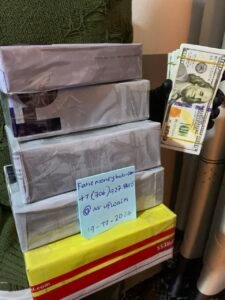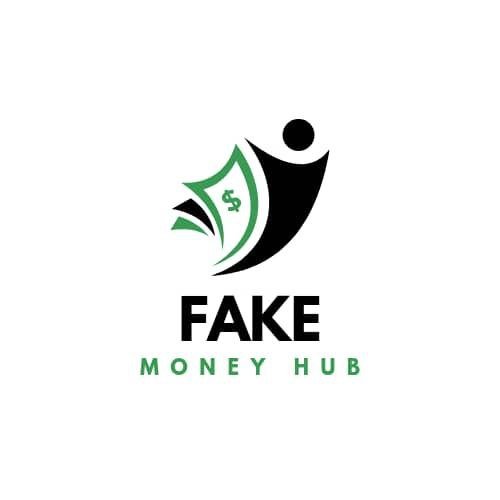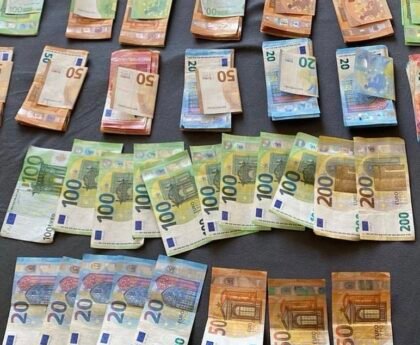Fake Money Counterfeit | Undetectable Counterfeit Money
Using Counterfeit Fake Money is a serious offense in the United States. It poses significant threats to the economy and financial stability. In response, federal and state laws enforce strict regulations and severe penalties for individuals producing or using Counterfeit Money. This article explores the core elements of U.S. counterfeiting laws or the penalties involved and the potential defenses available to those facing related charges. Read on to learn more.

U.S. Counterfeit Money Laws
U.S. laws on Fake Money are designed to maintain trust in the national currency by deterring and prosecuting counterfeiters. The primary federal statutes addressing counterfeiting offenses include 18 U.S. Code Sections 471 or 472 and 473. Section 471 prohibits making or forging and altering currency or other financial instruments intending to defraud.
This description generally goes beyond cash and accounts for obligations including bonds or certificates. Section 472 criminalizes possessing or using counterfeit money to defraud. Section 473 targets individuals who distribute or trade fake currency. These laws work together to discourage counterfeiting at every stage from production to circulation.
In addition to federal laws, many states impose their regulations on counterfeiting. Connecticut’s forgery law categorizes creating or possessing and using counterfeit currency as first-degree forgery a felony offense. These laws ensure that individuals cannot avoid prosecution simply by using fake money within state boundaries.
Consequences Of Counterfeiting Offenses
Under federal law the penalties for counterfeiting can be severe. Individuals convicted of producing and possessing or using Undetectable Counterfeit Money face up to 20 years in prison and a fine of up to $250,000. The fine is calculated based on the offender’s financial gain or the victim’s financial loss and it can be doubled in certain cases. At the state level, penalties vary but are often lighter than federal sentences.
For example, Connecticut’s forgery statute categorizes counterfeiting as a Class C felony punishable by up to 10 years and a $10,000 fine. Counterfeiting falls under Class III felony forgery with a maximum penalty of four years and a $25,000 fine in Nebraska. Oregon considers counterfeiting a Class C felony which is punishable by up to five years in prison and fines up to $125,000. These varied state penalties emphasize the importance of understanding both federal and state regulations related to counterfeit money.
Counterfeit Fake Money | Fake Money For Sale Online
Other Related Offenses
Counterfeiting laws often overlap with other criminal offenses. Some related charges include:
- Forgery: Creating or using falsified documents or items with legal significance.
- Larceny or Theft: Taking another person’s property without permission.
- Check Fraud: Writing worthless checks with insufficient funds.
- Conspiracy: Planning to engage in counterfeiting activities with others.
A conspiracy charge would also apply if more than one person is involved in the counterfeiting operations. Prosecutors need only show that an agreement existed and that an overt act was taken to further the plan without requiring proof that Counterfeit Money Near Me was actually circulated.
Defense Strategies In Counterfeiting Cases
People facing counterfeiting charges can sometimes argue that they didn’t intend to deceive anyone. If someone accepted Fake Money That Looks Real without knowing it was counterfeit they could claim they had no plan to use it illegally. Another defense might be that the counterfeit money was so poorly made that it wouldn’t fool an average person. Moreover, if the police use illegal methods like searching without a warrant it can weaken the case. This is called a procedural defense where the defendant argues their rights were violated during the investigation.
The Economic Impact Of Counterfeit Money
Economic toll of counterfeiting has an impact on both people and businesses. Accepting the fake money can result in loss which is sometimes borne by businesses but ultimately is indirectly passed on to consumers. On a larger scale, counterfeit currency can contribute to inflation and affect public trust in the monetary system.
The US government continually updates banknote security with features like watermarks or holograms and color-shifting inks to make counterfeiting more difficult. Public awareness campaigns alert people and companies about counterfeit money and the measures to take to stop it from circulating.
Counterfeiting is a severe offense in the United States with federal and state laws imposing heavy penalties for those involved in producing or using fake money. The U.S. aims to protect its economy and maintain public confidence in its currency by enforcing strict penalties and enhancing detection measures. Understanding counterfeiting laws and penalties is crucial as anti-counterfeiting efforts evolve to stay ahead of counterfeiters.

